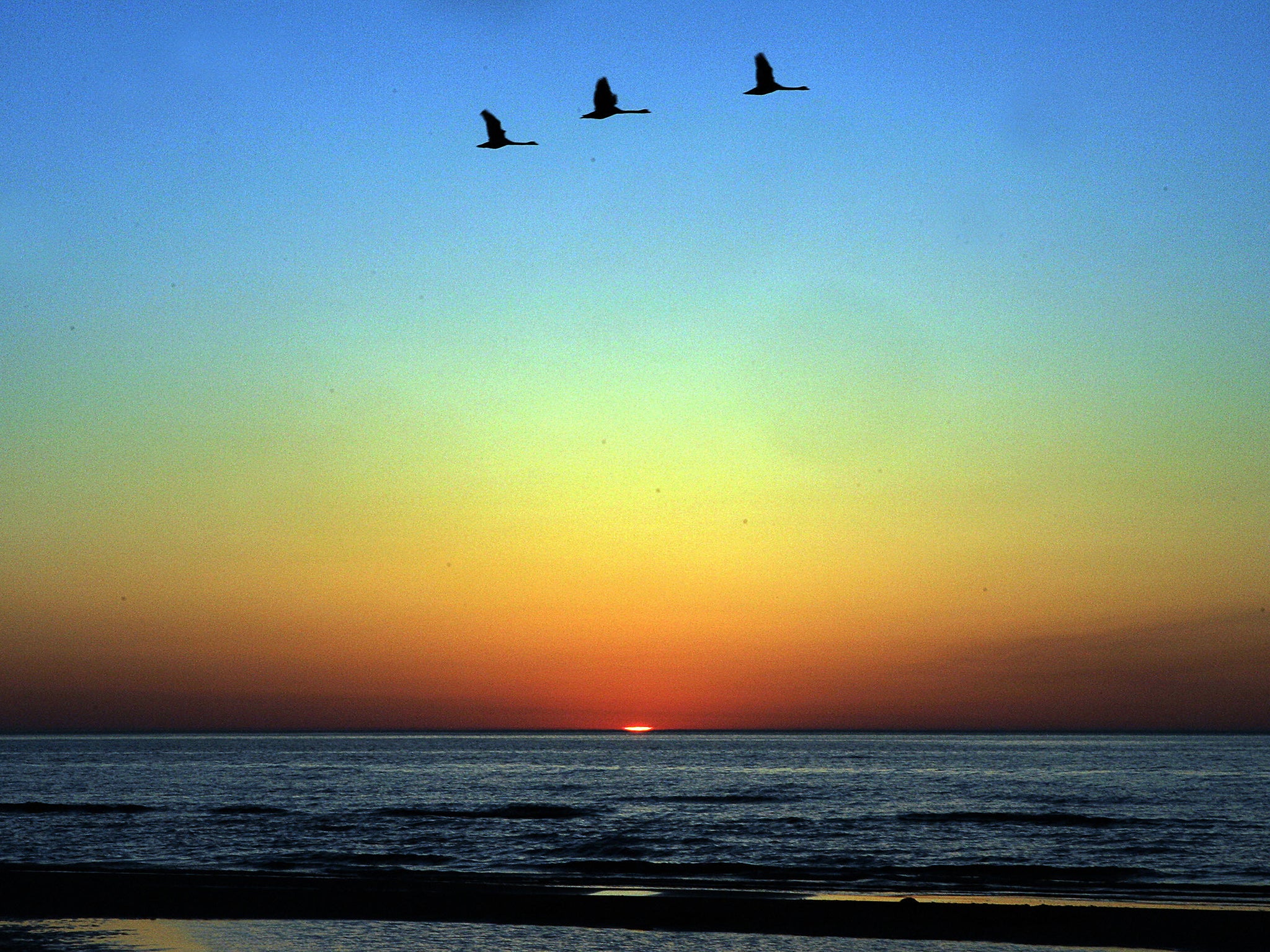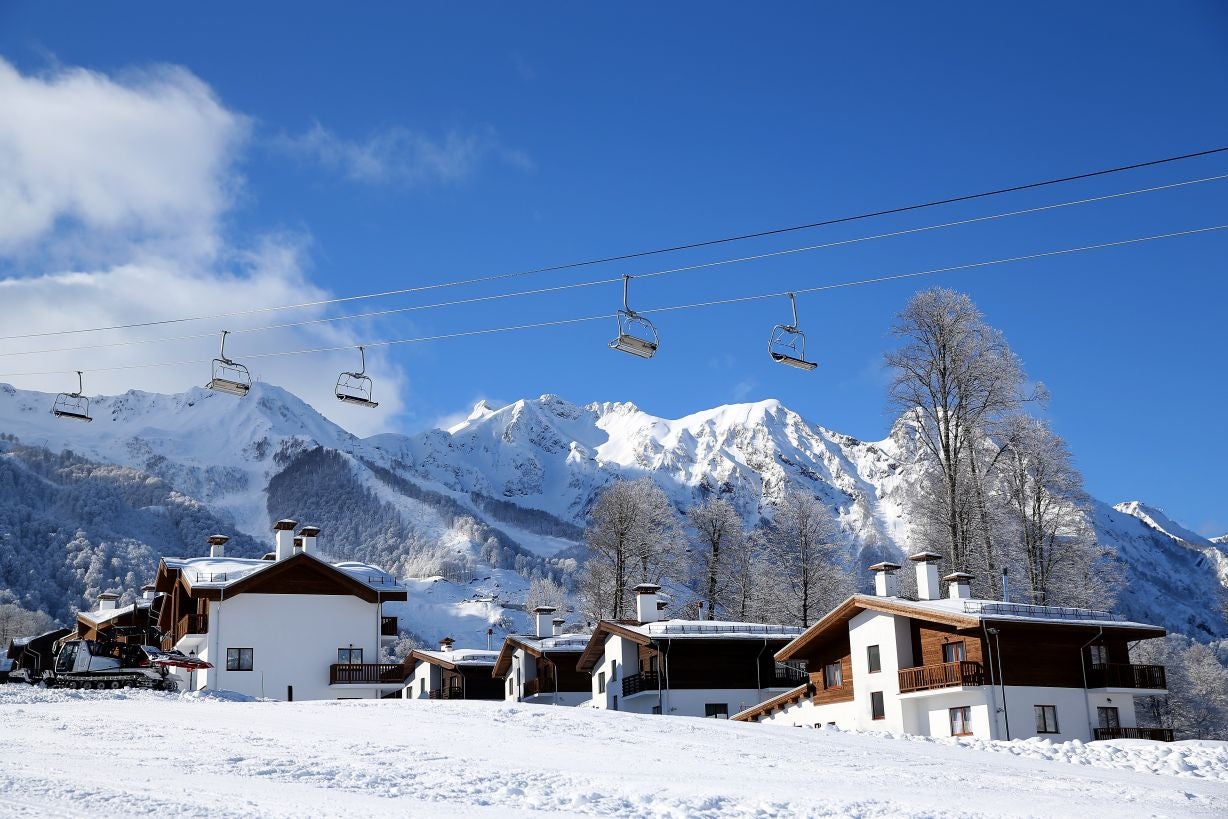Loss of Russian-run music festival sees Latvian resort of Jurmala fall victim of tumbling rouble and political strife over Ukraine
Decision to move New Wave across the border to Sochi apparently part of cultural tit-for-tat between the nations over annexation of Crimea and EU sanctions

For a sub-zero afternoon, an impressive number of walkers are out on the snow-bound Baltic seafront in the Latvian resort of Jurmala. Compared with summer, though, it is eerily quiet.
Every July thousands of tourists, most of them Russian, pack out the beach; they sleep in art nouveau dachas surrounded by pine forests, and party at the New Wave music festival. But this month it was reported that the Russian-run festival, a sub-X Factor talent contest for young singers, would no longer be held in Jurmala, its venue since 2002.
According to Russian media, the six-day festival – reputedly a get-together of the country’s most important oligarchs, politicians and gangsters – may be moving across the border to the Black Sea port of Sochi.
Jurmala’s tourism industry, sustained by visitors from the east since Soviet times, has been hit by the tumbling rouble, Russia’s struggling economy and political strife over Ukraine. New Wave appears to be the victim of a cultural tit-for-tat between Latvia and Russia over the annexation of Crimea and EU sanctions.
At the time of New Wave 2014, the Latvian government banned three Russian artists, Valeriya, Iosif Kobzon and Oleg Gazmanov, from travelling to the festival. Edgars Rinkevics, the Foreign Minister, cited the singers’ pro-Kremlin “propagandist” rhetoric as the reason for their exclusion.
Russia’s continuing, pronounced influence in this state of two million people is the cause of some unease among its Latvian-speaking majority, most of whom are strong supporters of the country’s membership of the EU, the euro and Nato.
For the economy of Jurmala – a usually sleepy place 25 miles east of Riga, the capital – the consequences of New Wave jumping ship could be catastrophic. Andrei Klementiev, a Latvian MP, said the festival’s absence could cost the town €17m (£12.5m).

And some traders told The Independent they depend on the festival. The five-star Baltic Beach hotel and spa, for example, will be slashing its prices for the peak season. Last July, sea-facing rooms fetched up to €8,000 for seven nights – the minimum stay during New Wave. “This year’s prices have not yet been confirmed. But now, of course, they will be much lower,” says Anna Zoricova, a manager at the hotel.
Over New Year – another popular time with Russians – bookings at the hotel, a converted sanatorium, were 30 per cent down on the year before. Aigas Kulls, 49, a stallholder who sells tourist-friendly trinkets on Jomas Street, says he had noticed business getting worse since last summer.
He may be forced to move his business to Riga’s Old Town, popular with British stag and hen parties. “[Riga Old Town] is the only place you can make good money now,” he says. “Usually, I would expect to earn some money in January… this year there have been no Russians at all.”
Jurmala’s long-standing popularity with Russians – it was a favoured holiday spot for Soviet leaders such as Leonid Brezhnev and Nikita Khrushchev – has also had a dark side. In 2013, police said remains found in woods were those of a Russian multimillionaire, Leonid Rozhetskin. The tycoon, who had fled his homeland to avoid being arrested for fraud, had disappeared in 2008 from his nearby villa, the night after two men visited.
But Anna, a middle-aged woman walking on Jurmala beach this week, still thinks New Wave will go ahead. She says: “New Wave have threatened to pull out before, and yet every year we still see its rich clientele strutting up Jomas wanting to be seen. It could well still happen.”
Join our commenting forum
Join thought-provoking conversations, follow other Independent readers and see their replies
Comments